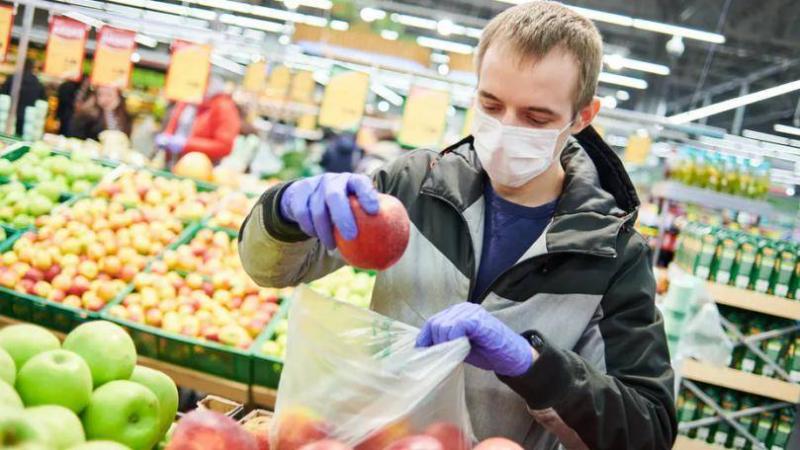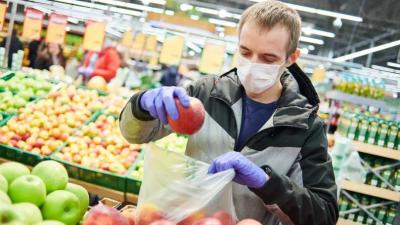Minister of Economy in the caretaker government, Amin Salam, supported the President of the Republic in not signing the decree regarding the customs dollar at the Sayrafa rate. He stated that he was against raising the customs dollar to 25,000 all at once, advocating instead to start at 18,000 and then gradually increase it. In response to a question, he deemed the suggestion of 12,000 for the customs dollar unrealistic and not conducive to the required solutions.
In an interview on Al-Hurra channel's "Lebanese Scene" program with Mona Saliba, he explained that, following the President's rejection of the decree, a reconsideration of the customs dollar increase ratio is currently underway. He affirmed that this would not affect food prices but would impact more luxury goods. He said, "I requested the Ministry of Finance to inform us of the lists of goods that will be directly affected by the increase in the customs dollar. I will also ask all importers to notify the Ministry of Economy of all goods that have entered and are currently entering Lebanon at the current customs dollar rate to prevent merchants from exploiting these goods when the rate is raised."
In response to a question about the expected timeline for raising the customs dollar, he answered, "I believe the matter has been postponed for at least two weeks." Salam confirmed the ongoing smuggling of subsidized wheat to Syria and noted that 80% of goods are smuggled through illegal crossings. Regarding subsidized wheat, he pointed out that "smuggling to Syria is ongoing and the borders are not under control." He stated, "It is impossible to control the borders without a framework agreement between the Lebanese and Syrian states." He added, "While the Lebanese state claims it has controlled legal crossings, 80% of smuggled goods are trafficked through illegal crossings."
He announced that "support for wheat will be lifted after nine months, as the funds we secured from the World Bank to ensure the availability of wheat are sufficient for nine months. During this period, we should study with the World Bank the addition of $30 to the social card so that families can benefit from this additional amount for purchasing bread, which can roughly buy 30 bundles, since the global price for a bundle is about one dollar." He clarified that this way, the Lebanese state would exit the commodity support game, receiving instead direct support for needy families.
He continued, "The program we reached with the World Bank aims to rationalize support until the Lebanese state emerges from the cycle of corruption it is caught in." He added, "In these nine months, we bought time, and that is the best possible solution today." Salam revealed that he refused to accept the status quo and impose another burden on the Lebanese by lifting support for flour, even though many were pushing for the support lift as they viewed it as the easier choice. Some politicians and narrow-interest individuals told him, "Just lift the support and relax."
He indicated that food security is at risk and that he is concerned about food quality and the entry of smuggled goods into Lebanon, saying, "I have said it and I repeat, food security is certainly at risk in light of the level of inflation and collapse we have reached."
He also expressed concerns about food quality, noting that food items not conforming to specifications are constantly being monitored. He said, "I am worried because in the coming months we must double our monitoring since Lebanon has begun replacing high-quality food items it previously imported with cheaper products, including meats that do not meet the usual quality in Lebanon, and we are monitoring this and controlling the violations."
He added, "There are smuggled goods entering Lebanon, and the security forces must combat them." While stressing the monitoring role of the Ministry of Economy, he lamented that this role suffers from the aftermath of 20 to 30 years of erroneous financial and monetary policies. He pointed out that "recently I had to establish a monitoring body. The Consumer Protection Directorate works with one support unit, which is State Security, but we are deficient in the number of inspectors, as there are only 50 to 55 inspectors across Lebanon. Hence, I requested that municipalities assist us in this task with municipal police, but I only received cooperation from about 5% of the municipalities in Lebanon."
Responding to a question about accusations against traders of exploiting the crisis, Salam expressed regret that "the private sector, to a large extent, has not spared the citizen and has not hesitated to exploit the state's weaknesses and exploit support on many commodities." He criticized the performance of the Central Bank, considering that it is implementing patchwork solutions through the circulars it issues, resulting in the disappearance of people's savings from one circular to the next.
He stated, "The declines we have reached in the dollar's exchange rate against the lira are real, not illusory." Salam expressed his concerns about the direction we are heading, considering that "the consequences of delaying solutions are catastrophic." In describing the current economic reality, he said: "As the Minister of Economy, I have been criticized for being the optimistic minister, but today I have significant fears about where we are heading. What was needed were rapid reforms and an agreement with the International Monetary Fund without waiting for one deadline after another. This delay has catastrophic consequences for the Lebanese economy, and swift decisions are needed from the government, the parliament, and all leaders."
In response to a question on whether he blames the President for not signing necessary laws such as the banking secrecy law, he replied: "I do not blame him; he has the right if he is not convinced as President, and any decision taken will be recorded against the President."




